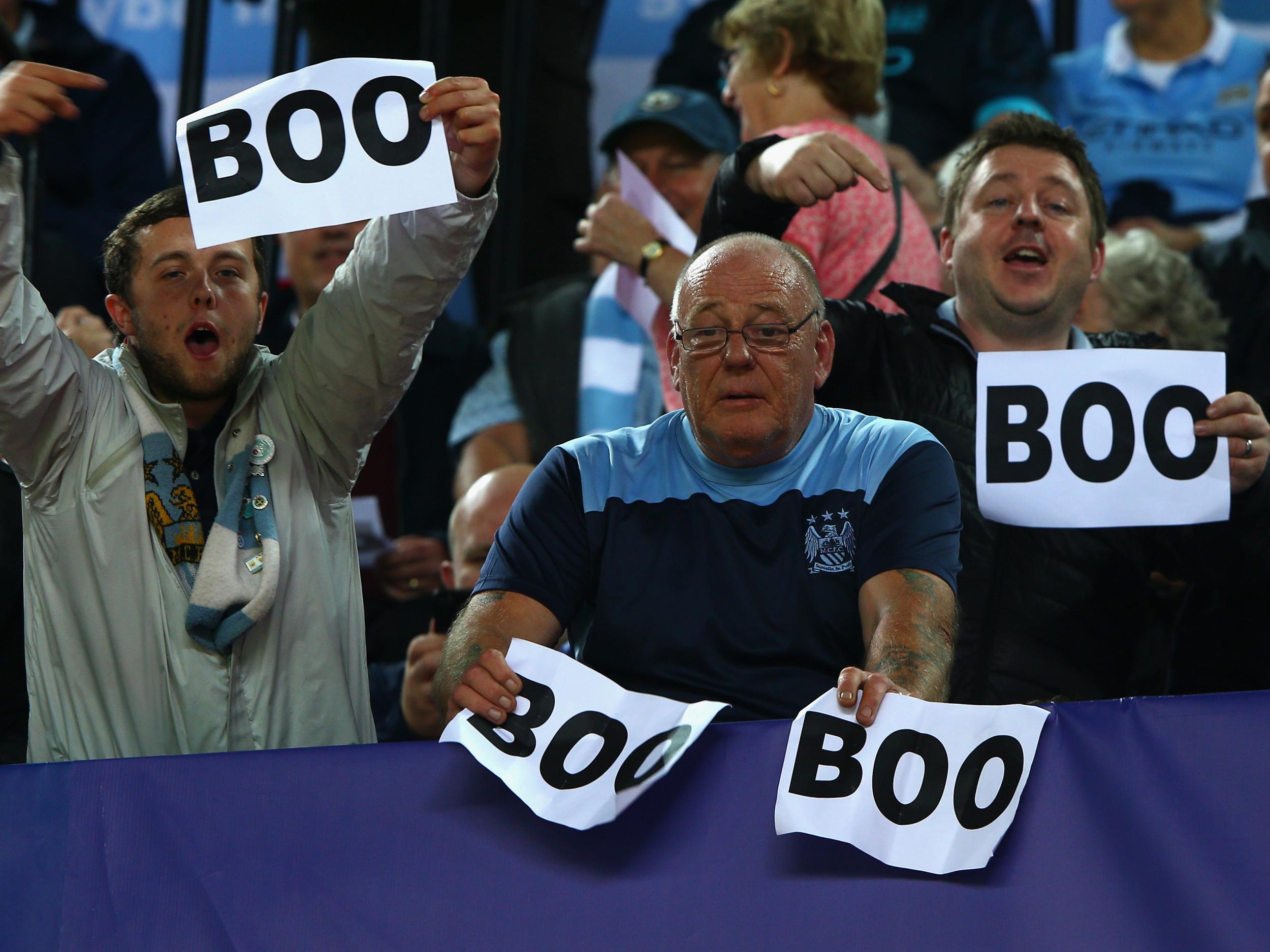Fans can boo Champions League anthem as much as they like, Uefa confirms
The European governing body will no longer punish clubs after a change in its disciplinary regulations

European clubs will no longer be punished for supporters booing the Champions League anthem or other Uefa themes, after the continental governing body decided to alter its disciplinary regulations.
The public show of dissent has become more commonplace at grounds in recent seasons, especially at clubs like Barcelona and Manchester City, where fans have expressed their disgust at certain sanctions and grievances.
That in turn led to further dissent in October 2015, when the Uefa match delegate at City’s 2-1 home Champions League win over Sevilla reported the club for breaching the regulations on supporter behaviour when he heard the boos.
After reviewing the case, though, Uefa’s disciplinary body ruled City would not be sanctioned due to the belief that fans should be able to express their dissent. It was similarly decided that the regulations needed to be updated, as a consequence of cases like that.
Whereas article 16G of Uefa’s measures stated in 2015 that associations and clubs would be liable for “the disruption of national or competition anthems”, the changes for this year have removed the reference to competitions. It now merely reads they will be liable for supporters “causing a disturbance during national anthems”.
Uefa meanwhile plan to keep pre-match celebrations like pop bands playing before their official fixtures, despite their current unpopularity with supporters.
The performance of the Black Eyed Peas before the 2017 Champions League final in Cardiff led to much social media derision, but sources in the governing body say it is something that has proven successful in the US, and they believe it can be beneficial for their fixtures to become entertainment events as much as sporting competitions, once football culture gets accustomed to the idea.
Join our commenting forum
Join thought-provoking conversations, follow other Independent readers and see their replies
Comments